This article was medically reviewed by Ronn Callada, RN, MS. Ronn Callada, ANP, RN is a Nurse Practitioner at the Memorial Sloan Kettering Cancer Center in New York. Ronn is also part of the adjunct faculty at New York University in nursing. He received his MS in Nursing from Stony Brook University School of Nursing in 2013.
There are 20 references cited in this article, which can be found at the bottom of the page.
wikiHow marks an article as reader-approved once it receives enough positive feedback. In this case, 100% of readers who voted found the article helpful, earning it our reader-approved status.
This article has been viewed 482,750 times.
Vomiting happens to everyone sooner or later, and while it's unpleasant, you can usually just treat your symptoms at home until it passes. Many things can cause it, ranging from stomach bugs and food poisoning to overeating, strong smells, or pregnancy. If you or someone in your home is experiencing vomiting, there are many things you can do to help alleviate the symptoms and feel better. If the vomiting doesn't pass in 24 hours, though, don't hesitate to contact your doctor for further guidance.[1] X Trustworthy Source Cleveland Clinic Educational website from one of the world's leading hospitals Go to source
Steps
Sip on water to prevent dehydration.
-
Try to drink 8-10 glasses over the course of the day. Vomiting can quickly lead to dehydration, so keep yourself hydrated by drinking plenty of water throughout the day. Stay on a regular schedule and take sips of water every 15 minutes while you're actively vomiting. However, drinking too quickly could cause more vomiting, so take small sips instead of large gulps.[2] X Trustworthy Source Cleveland Clinic Educational website from one of the world's leading hospitals Go to source
- Ice-cold drinks are much more soothing to the stomach than lukewarm or hot drinks. Keep your water or juice in the refrigerator so it's cold when you drink it.[3] X Trustworthy Source University of Rochester Medical Center Leading academic medical center in the U.S. focused on clinical care and research Go to source
- If plain water is making you nauseous, try squeezing some lemon juice into it for flavor.[4] X Trustworthy Source Mayo Clinic Educational website from one of the world's leading hospitals Go to source
- Sometimes sugary drinks like soda are more soothing for your stomach. Try drinking some ginger ale if water is making you nauseous.
Suck on an ice cube if you can't keep liquids down.
-
Sometimes drinking liquids can cause more vomiting. Sucking on an ice cube releases water slowly, which keeps you hydrated and avoids triggering further nausea.[5] X Trustworthy Source University of Rochester Medical Center Leading academic medical center in the U.S. focused on clinical care and research Go to source
- Don't bite down on the ice cubes. This could damage your teeth and also make you swallow too much water at once.
Have sports drinks if you've been vomiting for a long time.
-
These drinks provide electrolytes so you don't get dehydrated further. If you've been vomiting for several hours, then your body is probably low on electrolytes, sodium, and other nutrients. Replace these by switching from water to sports drinks for a little while.[6] X Trustworthy Source MedlinePlus Collection of medical information sourced from the US National Library of Medicine Go to source
- Products like Pedialyte are also good for replenishing nutrients.
- Follow the same rules that you used for drinking water. Make sure the drink is cold and drink it slowly to avoid overfilling your stomach.
Eat bland foods to prevent further vomiting.
-
Plain or bland foods are less likely to upset your stomach. You need to replenish lost nutrients from vomiting, but be careful about what you eat to prevent more nausea. Good options are crackers, toast, potatoes, and rice. Bananas and applesauce are also good options that usually don't upset your stomach. Eat as much as you can tolerate to replenish lost nutrients.[7] X Trustworthy Source University of Rochester Medical Center Leading academic medical center in the U.S. focused on clinical care and research Go to source
- Watery foods like broth or soup are good as well because they keep you hydrated.
- Avoid greasy and spicy foods, fast food, fried foods, and overly sweet foods. Dairy products can also make nausea worse.
Have small meals to avoid being too full.
-
Eat slowly and don’t force yourself to eat too much at once. Too much food on your stomach may trigger more nausea and vomiting. Try to nibble on smaller meals throughout the day, rather than eating large meals. [8] X Trustworthy Source MedlinePlus Collection of medical information sourced from the US National Library of Medicine Go to source
- Try to have 5 smaller meals instead of 3 large ones.
- Even if you have no appetite, try to have little snacks. This prevents further problems from a lack of nutrients.
Rest while you're feeling nauseous.
-
Sit down quietly and avoid moving around to prevent vomiting. If you're feeling nauseous, moving around can make it worse. Sit or lay down in a quiet area and stay still. Your nausea may pass after you stay like this for a while.[9] X Trustworthy Source MedlinePlus Collection of medical information sourced from the US National Library of Medicine Go to source
- Don't lay flat on your back if you have trouble getting up. Lay on your side instead, just in case you vomit.
- Watching TV or looking at other screens could make your nausea worse too. Try turning the TV off while you rest.
- Stay still for 2 hours after you eat. Moving around after eating could make your nausea worse. It may help to sit up, rather than laying down.[10] X Trustworthy Source Cleveland Clinic Educational website from one of the world's leading hospitals Go to source
Avoid being around strong smells.
-
Anything with a powerful scent can make you nauseous. You're especially sensitive to smells when you're nauseous, so you might vomit more if you're around strong smells—even if it's something you normally think smells good. Try to avoid smelly foods and products until the nausea passes and you're no longer vomiting.[11] X Trustworthy Source University of California San Francisco Health Center Research hospital associated with UCSF, a leading medical university, providing innovative patient care and public health resources Go to source
- If the smell of food is a trigger, ask someone else to do the cooking. This is very common in early pregnancy.
- Don't eat especially smelly foods like fish.
- Other strong smells like cigarette smoke and perfume may trigger vomiting in some people.
Stop taking all oral medications until the nausea passes.
-
Medications could irritate your stomach and cause more vomiting. Furthermore, if you vomit after taking a medication, your body won't absorb it and you'll miss your dose. Wait until your nausea passes to take any medications, including both pills and liquids.[12] X Trustworthy Source Cleveland Clinic Educational website from one of the world's leading hospitals Go to source
- If you have to take medications regularly throughout the day, call your doctor and ask what you should do.
Get some fresh air to alleviate your nausea.
-
Stale or stuffy air can make nausea worse. Try sitting outside for a little while, or staying near an open window in your home. If you feel well enough, you can go for a short walk too.[13] X Research source
- If you do go for a walk, move slowly and avoid rocking back and forth. This can make your symptoms worse. Also, don't go too far from home.
Practice controlled breathing to relax.
-
Sometimes nausea causes an increased heart and breathing rate. This can lead to further vomiting. Controlling your breathing could reduce that anxiety and alleviate your nausea. Sit in a quiet area, close your eyes, and focus on your breathing. Take long, controlled breaths, hold them in for a few seconds, and then slowly let them out. Breathing like this brings your anxiety down and could prevent further vomiting.[14] X Trustworthy Source PubMed Central Journal archive from the U.S. National Institutes of Health Go to source
- Practicing controlled breathing along with other relaxation techniques like meditation helps keep you even calmer.
- Try to avoid activities that will get your breathing rate up, like exercising. Even if you're feeling better, wait a day or so to work out again.
Add ginger to your food and drinks.
-
Ginger is helpful for fighting nausea and vomiting. The fresh form is best because many products don't contain much ginger. Try getting some ginger root and grating some into your drinks or over your food for nausea relief.[15] X Trustworthy Source PubMed Central Journal archive from the U.S. National Institutes of Health Go to source
- Although some studies support the use of ginger for vomiting, more research needs to be done to determine whether it is effective.[16] X Trustworthy Source PubMed Central Journal archive from the U.S. National Institutes of Health Go to source
- Ginger ale could also help your nausea, but it doesn't contain that much natural ginger.
- You can make your own ginger tea, but remember that hot beverages could make nausea worse. Ice the tea before drinking it so it soothes your stomach more.
- The maximum safe dose of ginger supplements is 4 grams (0.14 oz) (about ¾ of a teaspoon). If you're pregnant or breastfeeding, limit your intake to 1 gram per day.
- Ginger can interfere with some blood-thinning prescription medications. If you are taking blood thinners, consult your doctor before taking ginger.
Try acupressure to reduce your nausea.
-
Pressing a certain point on your arm may help. The P6 acupuncture point at the inner forearm can prevent nausea and vomiting when stimulated.[17] X Trustworthy Source Mayo Clinic Educational website from one of the world's leading hospitals Go to source Position your hand so that your palm is facing you and your fingers are pointing upward. Place 3 fingers of your opposite hand horizontally across your wrist. Use your thumb to feel the point just below your index finger. Press on this point for 2-3 minutes using a circular motion. Repeat the process on your other wrist.[18] X Research source
- Although some studies support the use of acupressure for nausea, more research needs to be done to determine whether it is effective.[19] X Trustworthy Source PubMed Central Journal archive from the U.S. National Institutes of Health Go to source
- You can also use an acupressure band, such as Sea-band® or ReliefBand®. These are available at pharmacies or online.
- Wearing acupressure bands is especially helpful on trips if you get motion sickness.
Use peppermint aromatherapy to mask other smells.
-
Peppermint is linked with reducing nausea. Apply 1-2 drops of peppermint oil extract to a clean gauze pad and inhale the solution. This can soothe your symptoms and also cover any unpleasant smells that might make your nausea worse.[20] X Research source
- Aromatherapy shows mixed results in clinical trials, but it is safe and harmless if you want to try it.[21] X Trustworthy Source PubMed Central Journal archive from the U.S. National Institutes of Health Go to source
- Sucking on peppermint candies could also work. At the very least, they'll make your mouth taste better and get your mind off of vomiting.
- This treatment is safe for pregnant women.
- Don't apply aromatherapy oils to your skin. This can cause irritation or an allergic reaction.[22] X Trustworthy Source Mayo Clinic Educational website from one of the world's leading hospitals Go to source
Seek emergency medical care if you have other serious symptoms.
-
These include chest pain, blood in your vomit, or other injuries. If you're experiencing any of these, don't try to treat your vomiting at home. Instead, get to an emergency room as soon as possible. Emergency symptoms include:[23] X Trustworthy Source Mayo Clinic Educational website from one of the world's leading hospitals Go to source
- Vomiting that continues longer than 12 hours.
- Signs of severe dehydration, like dry mouth, sleepiness, dark or decreased urine, headache, dry skin, and dizziness.
- Severe abdominal or chest pain, which could indicate an impending heart attack.
- Dark, red blood or what looks like coffee grounds in your vomit.[24] X Trustworthy Source Mayo Clinic Educational website from one of the world's leading hospitals Go to source Continued vomiting can potentially rupture or tear your stomach lining, which can cause blood to appear in your vomit.
- Vomiting after a head injury. This is a symptom of a concussion.[25] X Trustworthy Source Mayo Clinic Educational website from one of the world's leading hospitals Go to source
Warnings
- If you have been vomiting for more than 12 hours, see a doctor or go to the hospital.[28] X Trustworthy Source Cleveland Clinic Educational website from one of the world's leading hospitals Go to source⧼thumbs_response⧽
You Might Also Like

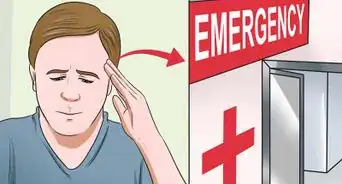
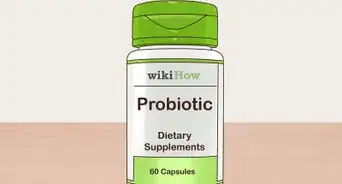
 How to Throw up More Comfortably When You Are Sick
How to Throw up More Comfortably When You Are Sick

-Step-9-Version-5.webp)
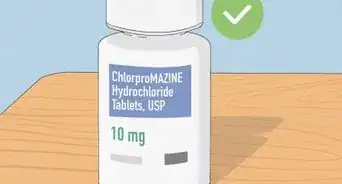 What Helps with Nausea? 15+ Expert Strategies
What Helps with Nausea? 15+ Expert Strategies






References
- ↑ https://my.clevelandclinic.org/health/symptoms/8106-nausea--vomiting
- ↑ https://my.clevelandclinic.org/health/symptoms/8106-nausea--vomiting/care-and-treatment
- ↑ https://www.urmc.rochester.edu/encyclopedia/content.aspx?contenttypeid=56&contentid=2939
- ↑ http://www.mayoclinic.org/symptoms/nausea/basics/when-to-see-doctor/sym-20050736
- ↑ https://www.urmc.rochester.edu/encyclopedia/content.aspx?contenttypeid=56&contentid=2939
- ↑ https://medlineplus.gov/ency/patientinstructions/000122.htm
- ↑ https://www.urmc.rochester.edu/encyclopedia/content.aspx?contenttypeid=56&contentid=2939
- ↑ https://medlineplus.gov/ency/patientinstructions/000122.htm
- ↑ https://medlineplus.gov/ency/patientinstructions/000122.htm
- ↑ https://my.clevelandclinic.org/health/symptoms/8106-nausea--vomiting/care-and-treatment
- ↑ https://www.ucsfhealth.org/education/diet-modifications-for-nausea-and-vomiting
- ↑ https://my.clevelandclinic.org/health/symptoms/8106-nausea--vomiting/care-and-treatment
- ↑ https://www.uhn.ca/PatientsFamilies/Health_Information/Health_Topics/Documents/How_to_Manage_Nausea_Vomiting_cco.pdf
- ↑ https://www.ncbi.nlm.nih.gov/pubmed/26408513
- ↑ https://www.ncbi.nlm.nih.gov/pmc/articles/PMC4818021/
- ↑ https://pubmed.ncbi.nlm.nih.gov/10793599/
- ↑ https://www.mayoclinic.org/diseases-conditions/morning-sickness/diagnosis-treatment/drc-20375260
- ↑ http://www.mskcc.org/cancer-care/patient-education/resources/acupressure-nausea-and-vomiting
- ↑ https://www.ncbi.nlm.nih.gov/pmc/articles/PMC3154967/
- ↑ https://europepmc.org/article/med/29850445
- ↑ https://pubmed.ncbi.nlm.nih.gov/22784340/
- ↑ https://www.mayoclinic.org/healthy-lifestyle/consumer-health/expert-answers/aromatherapy/faq-20058566
- ↑ https://www.mayoclinic.org/symptoms/nausea/basics/when-to-see-doctor/sym-20050736
- ↑ https://www.mayoclinic.org/symptoms/nausea/basics/when-to-see-doctor/sym-20050736
- ↑ https://www.mayoclinic.org/diseases-conditions/concussion/symptoms-causes/syc-20355594
- ↑ https://uhs.umich.edu/diarrheavomiting
- ↑ https://my.clevelandclinic.org/health/symptoms/8106-nausea--vomiting/care-and-treatment
- ↑ https://health.clevelandclinic.org/what-causes-vomiting-and-what-should-you-do-about-it/

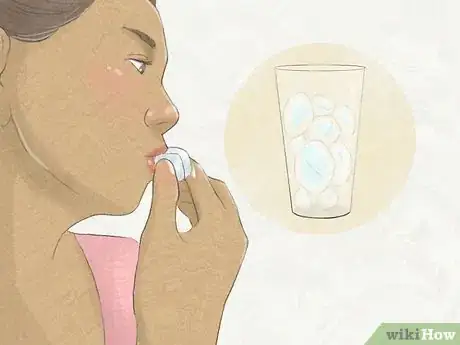

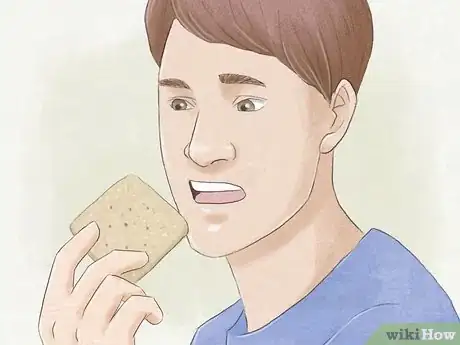

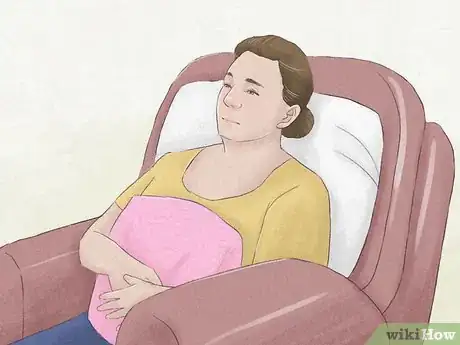
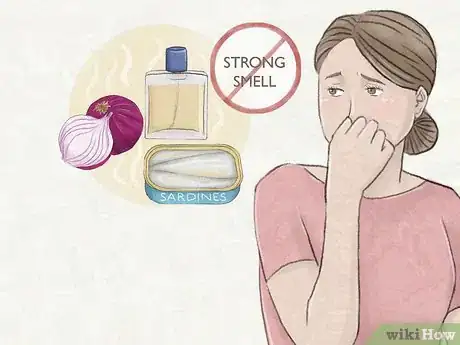
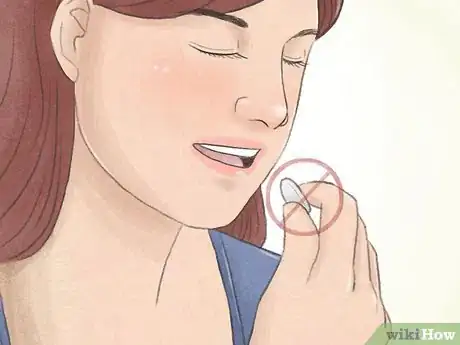

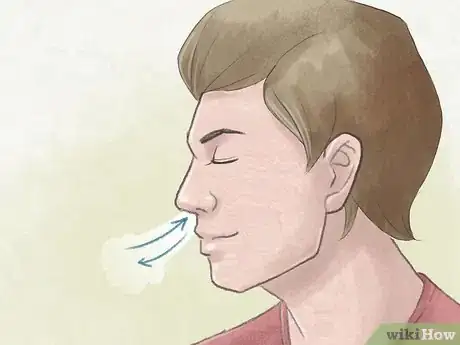
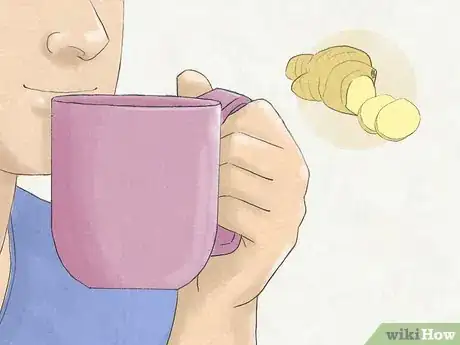
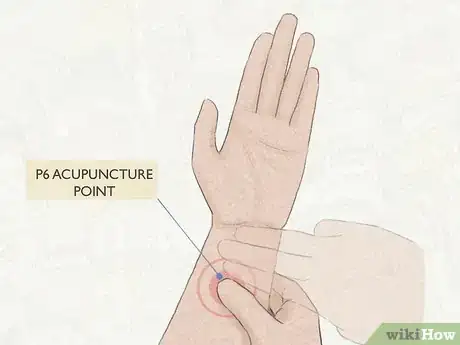
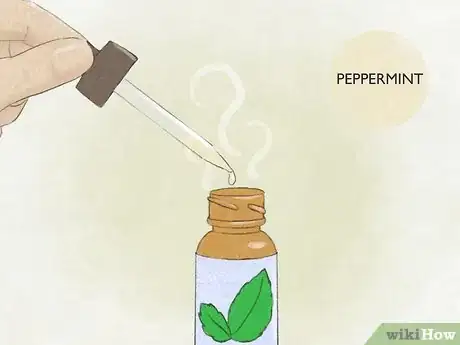
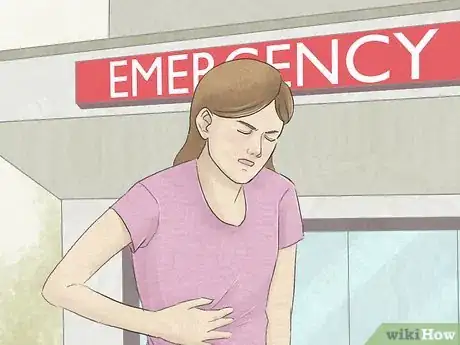











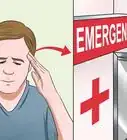





































Medical Disclaimer
The content of this article is not intended to be a substitute for professional medical advice, examination, diagnosis, or treatment. You should always contact your doctor or other qualified healthcare professional before starting, changing, or stopping any kind of health treatment.
Read More...